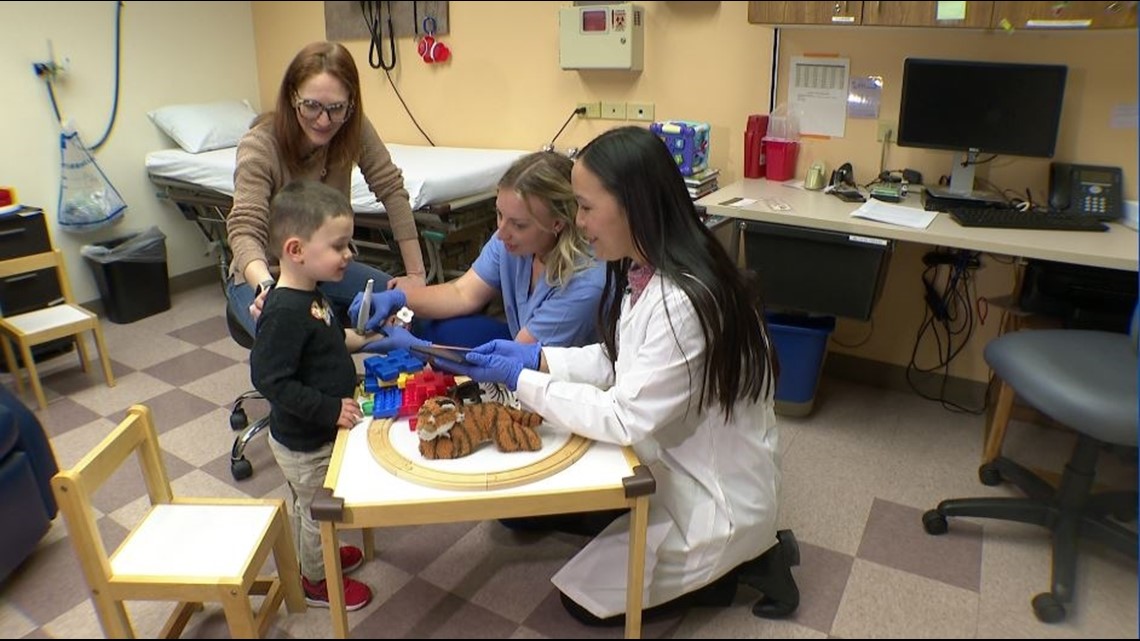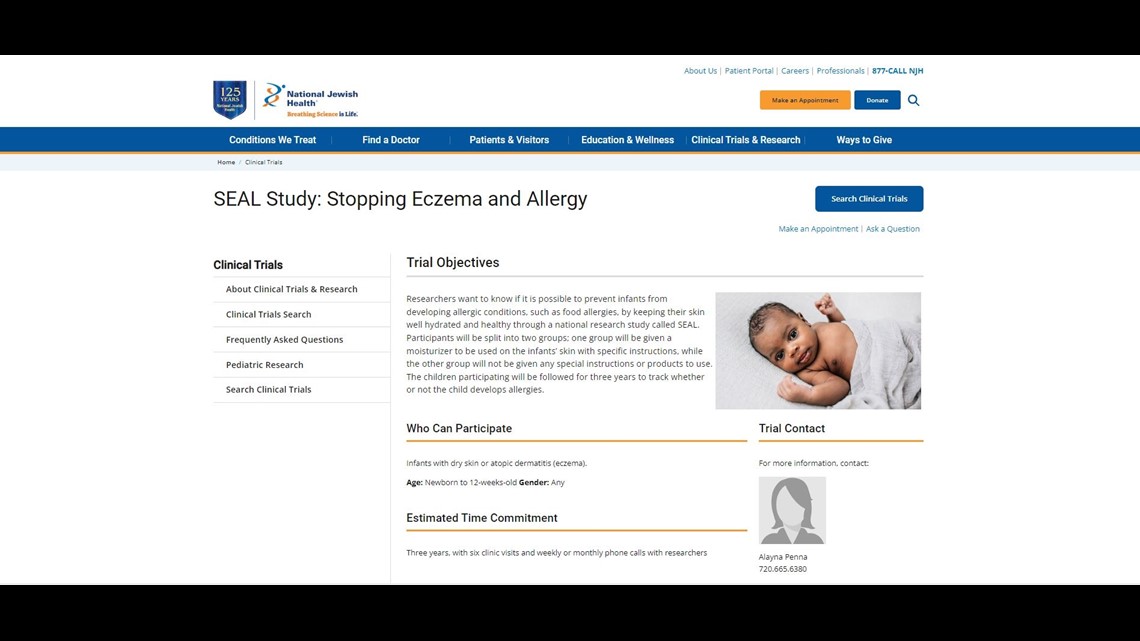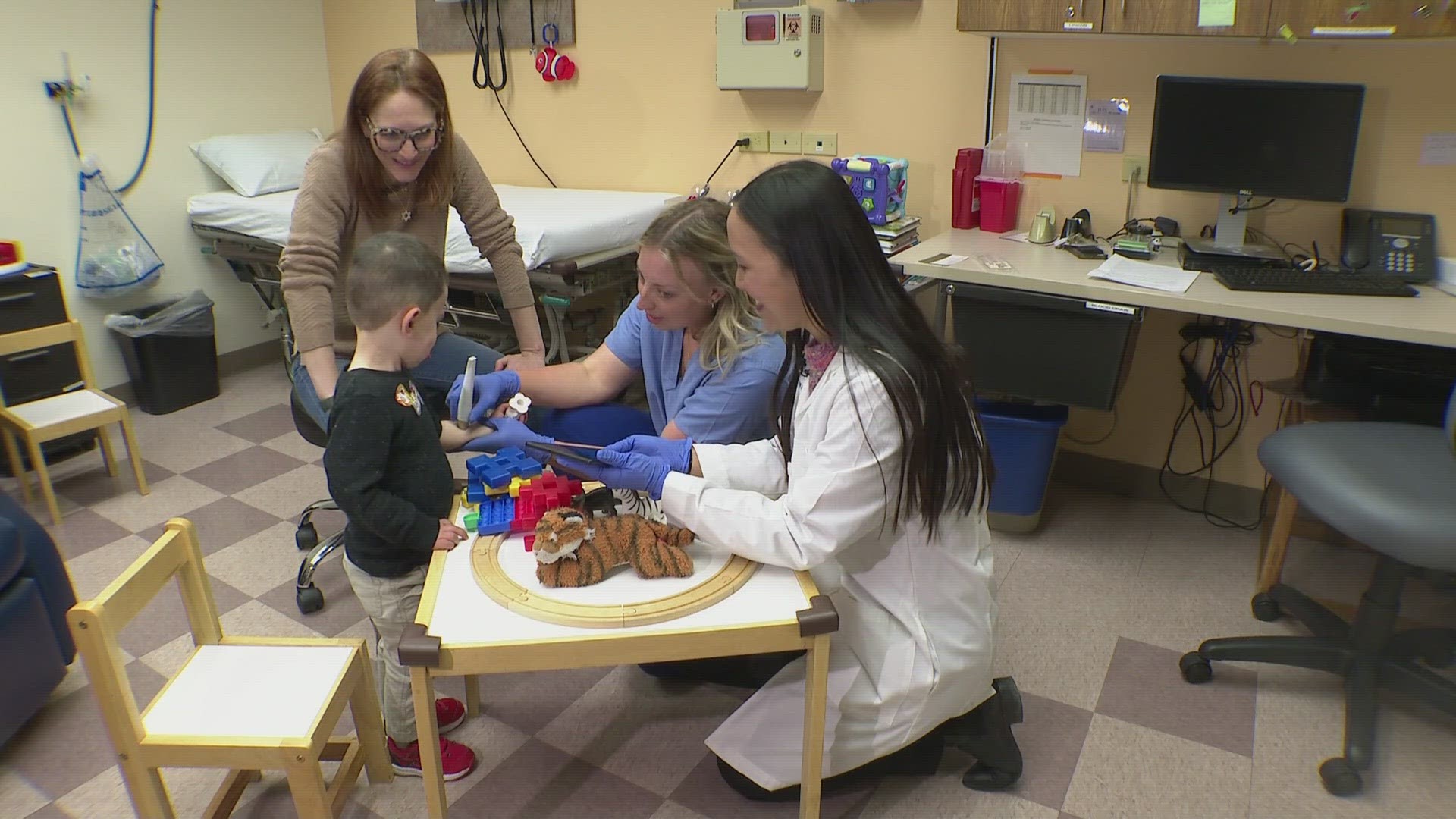DENVER — National Jewish Health (NJH) is looking to enroll infants into a new study they believe could be life-changing. Doctors at NJH said they've found new clues that can tell if a child is more likely to develop food allergies.
This new study is hoping to stop any of those allergies from even starting.
Talia Haykin enrolled her son Avi into the study.
"When he was born we didn’t think he had anything either. But by the time we started the study and got here, he had some outbreaks on his head and on his arm. And so turns out he does have eczema," Haykin explained. "They scratch a lot and they are uncomfortable and you want to make them comfortable and you don't know how."
That's where people like Dr. Jessica Hui come in. Hui is leading a study on how to prevent food allergies. Many kids who develop them often have eczema first.


"So we found that in just looking in the skin of small infants that there are markers within the skin that will predict who might go on to develop food allergy," Hui explained. "So for an intervention piece we want to see if we use certain creams early in life, does this decrease the risk of developing eczema and food allergy and respiratory allergy like asthma."
According to the Centers for Disease Control and Prevention, one in 13 children - or about two students per classroom - have a food allergy. The bodies response to a food allergy can be considered life threatening. It's why Haykin decided to enroll her son into the study.
"When I have friends who have kids years from now and this comes to fruition, to know that their treatment for eczema came from our work slathering him with cream twice a day is a really neat feeling," Haykin said.


The study is called the SEAL Study: Stopping Eczema and Allergy. National Jewish Health is looking to enroll newborns into this study. Any baby up to 12 weeks old that has dry skin or eczema is eligible. The study will last three years and include six clinic visits and weekly or monthly phone calls with researchers. Those leading the study said there is some compensation.
Hui hopes more parents believe in the cause she said would likely make history.
"It’s going to be a landmark study and really be able to change how we treat and not just treat but prevent allergies," she said. "I would say this is a revolutionary study because you know we’re not doing anything hugely invasive we’re simply applying creams and if that can really prevent the course of someone’s allergic history that will be huge."
SUGGESTED VIDEOS: Ask Dr. Kohli

